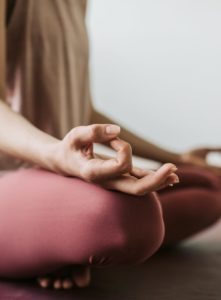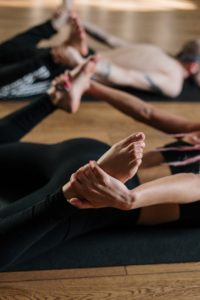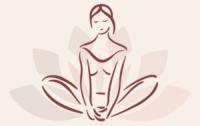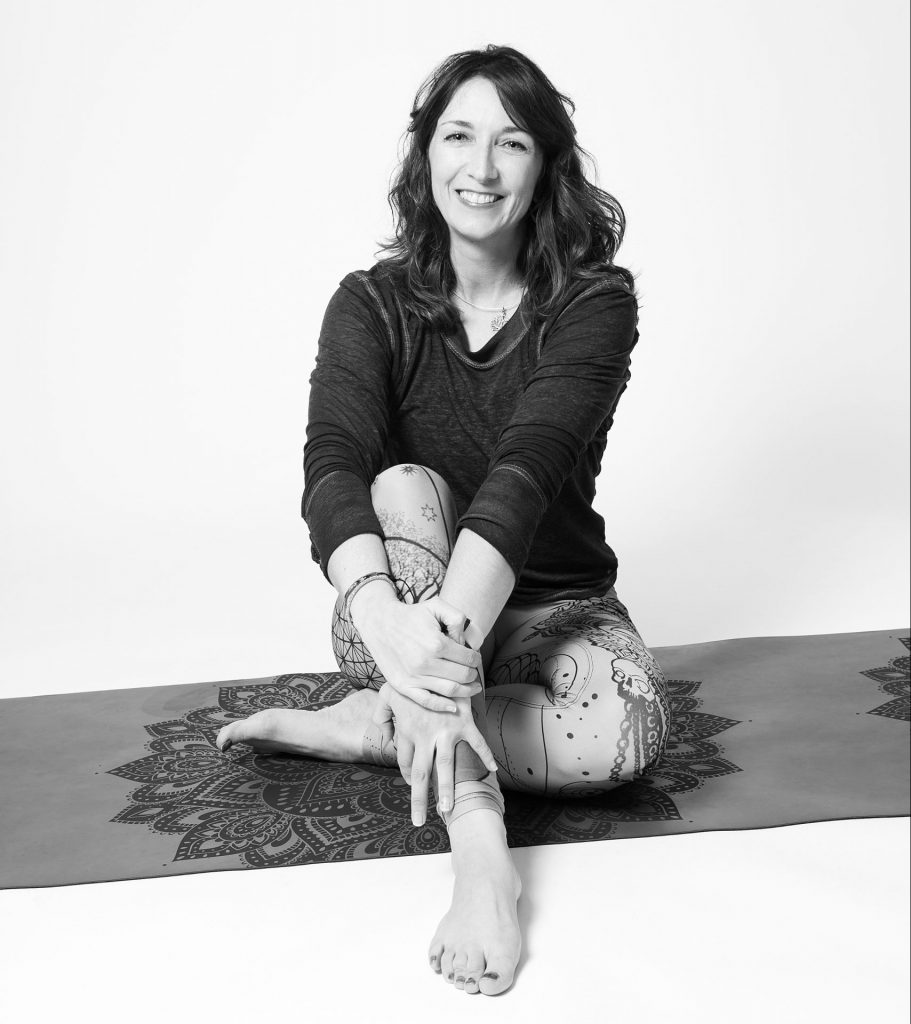«Yoga teaches us to cure what need not be endured and endure what cannot be cured.» – B.K.S. Iyengar
Yoga at Arogya: A Gentle Path Back to Yourself
For me, yoga is not a workout – it’s a way home. A way to reconnect with your body, calm your mind, and feel truly present with yourself. Whether you’re feeling exhausted, stressed, or simply seeking a gentle path to regain strength and inner stability, yoga can offer deep support.
In my classes, you are welcome exactly as you are. It’s not about perfect poses or flexibility – it’s about mindful movement, conscious breathing, and the simple act of feeling yourself again. At Arogya, mindfulness and breath are always at the heart of the practice, even in group settings.
If you’re navigating specific challenges or seeking more individual support, yoga therapy offers a tailored, therapeutic approach. Through somatic practices, gentle movement, and resource-oriented guidance, we strengthen what nourishes you – at your pace, with care and clarity.
Whether in a group or one-on-one: yoga with me is a space for healing – honest, quiet, and lasting. It’s your time to return to yourself.
Arogya Yoga services:
Every person is unique – with different needs, bodies, and states of mind. What feels right for you might not suit someone else. And what works in the morning might not serve you by evening. That’s why yoga at Arogya is adaptable and accessible. It can be practiced at any age and with any physical condition. Whether using a chair, cushion, or blanket, every posture (asana) can be modified to meet you exactly where you are – gently and mindfully.
YOGA THERAPY
Gentle. Effective. Holistic.
Yoga therapy is a holistic, body-mind approach that supports you in actively improving your health—especially when navigating chronic conditions, stress, fatigue, or recovery after difficult life phases.
It’s not about performance. It’s about rebuilding trust in your body and creating space for healing—physically, emotionally, and mentally. Together, we work with gentle movement, conscious breathing, mindfulness, and somatic practices—individually tailored to your current state and goals.
Empower yourself to manage chronic symptoms and reconnect with your body through breath, awareness, and gentle movement.
You don’t need to be flexible or experienced to begin—just willing to meet yourself where you are.
PROCEDURE
In our initial intake session, we take time to explore where you currently are in your life, where you wish to grow, and what challenges you may be facing — physically, mentally, or emotionally. This conversation helps us define meaningful and realistic goals tailored to your unique situation.
Through a physical and breath-based assessment, I gain insight into how your body moves, breathes, and stores tension — always taking into account any limitations or insights shared during our intake.
Based on this, we begin individual sessions designed specifically for you. Each session is adapted to your needs, energy levels, and progress. Session lengths are flexible — ranging from 30 to 90 minutes — and are agreed upon together, to support you in the most effective and compassionate way.
FREQUENTLY ASKED QUESTIONS ABOUT YOGA THERAPY
🧘♀️ Do I need to know how to do yoga?
No. Yoga therapy is not a traditional yoga class and does not require any previous experience. We work with simple, adapted exercises – always at your own pace and tailored to your abilities.
📍 What is the difference between yoga and yoga therapy?
While traditional yoga focuses on general well-being through movement, breath, and mindfulness, yoga therapy offers a more personalized, therapeutic approach. It’s tailored to your specific physical or emotional needs — such as chronic symptoms, pain, fatigue, or stress — and supports healing by meeting you exactly where you are. Think of it as yoga with a therapeutic intention and one-on-one guidance.
💬 How does a session work?
At the beginning, we discuss what is on your mind. Then we choose suitable methods together – e.g. mindful movement, breathing exercises, somatic techniques or relaxation. If you wish, you can also receive exercises to do at home.
🪷 Is yoga therapy physically demanding?
No – it can be very gentle. Many exercises work through breathing, mindfulness or small, conscious movements. However, depending on the issue, it can also be stabilising or strengthening. Everything is tailored to your individual needs.
🧾 Is yoga therapy covered by health insurance?
Yoga therapy is not currently recognised by all health insurance providers in Switzerland. However, some supplementary insurance policies (complementary medicine) cover part of the costs – please check this directly with your insurance provider.
📅 How often should I come?
The appropriate frequency will be determined during our initial consultation and an individual breathing and body assessment. Depending on the issue, your goals and your everyday life, occasional support may be beneficial, or a regular therapeutic process may be more suitable. Together, we will find the rhythm that really supports you – without pressure and in line with your capabilities.
🌿 Is yoga therapy more physical or mental?
Both. Yoga therapy combines bodywork, breath awareness and somatic mindfulness approaches. It has a regulating effect on the nervous system, supports healing processes and can help release emotional tension. The goal is always to strengthen you as a whole.
💡 What are the specific benefits of yoga therapy?
Yoga therapy can help with stress, chronic complaints, sleep disorders, exhaustion, breathing problems, tension, pain and much more. It supports you in getting back in touch with your feelings, building stability and finding access to inner peace and strength.
WHO IS YOGA THERAPY FOR?
Yoga therapy is for anyone seeking gentle, holistic support — no matter your age, mobility, or previous experience. It meets you where you are and helps you reconnect with your body, breath, and inner resilience.
It can be especially helpful if you’re navigating:
- Chronic symptoms like pain, fatigue, tension, or sleep disturbances
- Autoimmune conditions such as Hashimoto’s, rheumatism, Long COVID, or irritable bowel syndrome
- Stress-related symptoms, including exhaustion, overwhelm, restlessness, or headaches
- Psychosomatic issues, where emotional and physical symptoms are deeply linked
- Life transitions, whether after illness, loss, or when you’re simply looking to reconnect with yourself
Yoga therapy complements medical or psychotherapeutic treatment, but does not replace it. The focus isn’t just on relieving symptoms — it’s on supporting you as a whole person.
Mindful. Compassionate. And always centered on what’s truly possible for you.


PRIVATE YOGA LESSONS
Space for You – Mindful, Personal, and Grounded in Connection
In private sessions, you are the focus—your body, your breath, your needs. Whether you’re looking to deepen your practice, build strength and stability, or simply take time to reconnect with yourself, this is your space to move, breathe, and grow at your own pace.
Each session is tailored individually, with supportive movement, breath awareness, and mindful guidance that integrates into your daily life. It’s a space where you can be exactly as you are—without pressure or comparison.
Private yoga is ideal if you’re new to yoga, navigating physical limitations, or simply prefer the quiet presence of one-on-one support. It’s also a powerful way to prepare for group classes with more confidence and self-awareness.
GROUP LESSONS
The group lessons take place in a small group in my yoga studio in Umiken. There is room for a maximum of 7 people.
My classes incorporate the following styles, tailored to the group and the day:
HATHA YOGA
This approach to yoga is often referred to as “the powerful way” and involves the practice of postures and breathing techniques. Hatha Yoga aims to achieve harmony and balance in body, mind and spirit. You are gently guided into the individual asanas. In my classes I place more emphasis on the correct execution of the asanas than on the flow from one posture to the next.
YIN YOGA
Yin stands for calmness, femininity and softness. The focus of this type of yoga is on discovering one’s own body and feeling intensely into oneself in the here and now. Although the asanas are held in a relatively comfortable position for the body, holding them for long periods of time, usually between 3 and 5 minutes, can be physically and mentally challenging. Yin yoga practice offers the opportunity to look intensively into oneself and to surrender to one’s emotions.
Holding the asanas for longer allows you to sink into the posture bit by bit. This increases the flexibility of the muscles, fascia, connective tissue and ligaments in the body, so that tension can be relieved or completely released, harmonising the flow of chi.
YIN YANG YOGA
Combines dynamic yoga (yang) with calm, meditative yoga (yin). The two styles complement each other and bring you back into balance. I transfer this principle to the yoga classes and thus create balance and harmony between activity and rest, between tension and relaxation, doing and being in body, mind and soul.
FEMININE YOGA
We focus on the pelvic and heart areas. Gentle flows, many circular and intuitive movements that relax your belly and pelvis, breathing exercises, meditations and holding yin positions await you. We put aside the idea of performance and remain mindful of and with ourselves. With Feminine Yoga I would like to address women who are slowly approaching the menopause, or have already left it behind and support them in bringing their hormone balance into equilibrium and keeping it there – ideal for increasing overall wellbeing and reducing stress.
RESTORATIVE YOGA
When practising Restorative Yoga, the emphasis is on letting go. With practical yoga aids, you can linger long and comfortably in the asanas and concentrate undisturbed on yourself. Softly bedded on cushions, blankets or yoga blocks, the asanas are held for 5 – 10 minutes. Restorative yoga is wellness for your body and mind. The stressful everyday life, burdensome thoughts and other stress factors fade away during the passive exercises and move more and more into the background. By staying in the yoga postures for a long time, the muscles relax intensively, circling thoughts dissolve and the heartbeat slows down. If Restorative Yoga is practised regularly, sleep can also improve permanently and you wake up refreshed in the morning.
PRANAYAMA
Pranayama is the practice of regulating the breath. It is a main component of yoga, a practice for physical and mental well-being. In Sanskrit, “prana” means life energy and “yama” means control.
The aim of pranayama is to connect body and mind. It also oxygenates the body while removing toxins. This is said to bring healing physiological benefits.
The benefits of pranayama have been widely researched.
According to scientific studies, pranayama can benefit health in many ways.
- Reduces stress
- Improves sleep quality
- Increases mindfulness
- Reduces high blood pressure
- Improves lung function
- Improves cognitive performance
MEDITATION
Meditation is about focusing or clearing the mind through a combination of mental and physical techniques.
We focus on the physical sensations felt throughout the body. We practice mindfulness by being aware of what is happening in the moment, rather than letting the mind wander and worrying about the past or the future. We meditate to relax, reduce anxiety and stress and much more.



